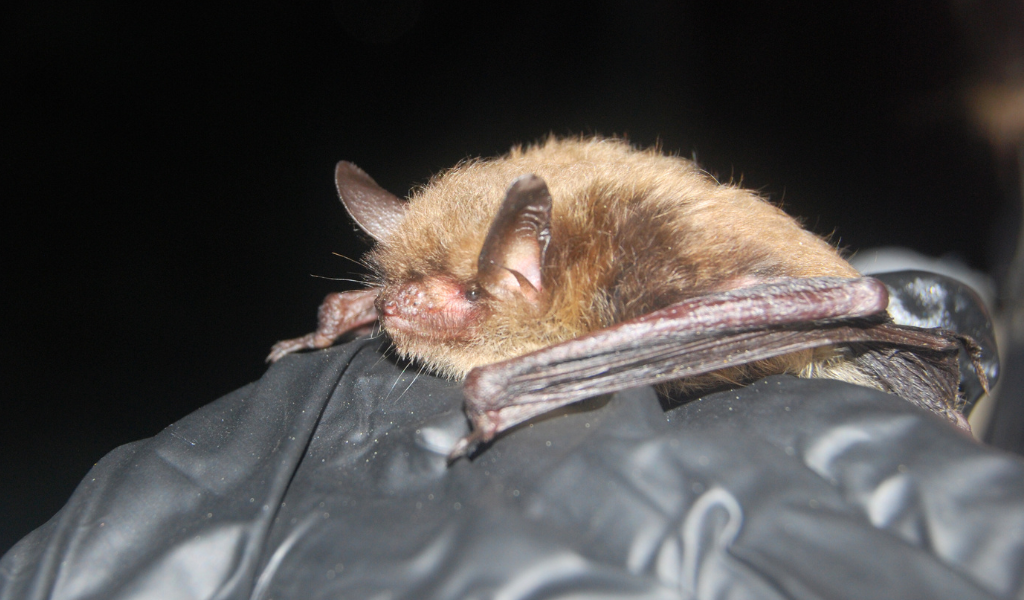CWHC monitoring bat populations in Atlantic Canada

The weather is warm, the insects are out, and our friendly neighbourhood bats have been getting cozy in their summer roosts.
The Canadian Wildlife Health Cooperative (CWHC), Atlantic Region at the Atlantic Veterinary College (AVC), University of Prince Edward Island (UPEI), is working with the Government of Prince Edward Island’s (PEI) Fish and Wildlife Division to help monitor one of our elusive resident bat species: the Northern Myotis.
White-nose syndrome (WNS), a disease caused by the fungus Pseudogymnoascus destructans, has greatly affected this species. It primarily impacts hibernating bat species during winter. There has been an estimated decrease of over 90 per cent in populations of Little Brown Myotis, Northern Myotis, and Tri-colored Bats due to WNS and other threats, resulting in them being listed as endangered under the federal species-at-risk act. Northern Myotis appears to be at a higher risk of regional extirpation or extinction. A study conducted in 2023 did not capture a single Northern Myotis in PEI and found a 99 per cent decline in capture rates across the Maritime provinces. Continuing to monitor bat populations is very important for tracking the spread of WNS, assessing populations, and protecting suitable habitats for the three endangered species in Canada.
This summer, the CWHC team is placing bat acoustic detectors and trail cameras to target Northern Myotis in suitable roosting habitats in forested landscapes on PEI. This collaboration is made possible through funding from the PEI Forested Landscape Priority Place for Species at Risk. The team hopes to detect this mysterious species to help the province make informed decisions on future monitoring and habitat protection.
Did you know you can help your local bat biologists study bats?! The toll-free CWHC Atlantic Bat Hotline is a great resource to get involved with bat conservation anywhere in Atlantic Canada. If you see a bat flying around, sleeping, or accidentally getting into the house, or if you find a cave or an old hand-dug well that may be used by bats, call the bat hotline at 1-833-434-BATS (2287). The hotline is monitored from 9:00 am–5:00 pm every weekday, but please leave a message if we don’t connect immediately as we might be out monitoring bats. We use your bat observations to help target monitoring efforts in the region. The hotline can provide advice about what to do if you find a bat in your home, how to help with conservation of local bat species, how to get involved with monitoring, and answer any questions you may have about bats.
You can also help bats by reporting sightings, building bat houses, protecting bat habitat on your property, conducting colony counts, decontaminating gear after caving, and planting night-blooming flowers in your garden. If you have a body of water on your property, you can help bats by adding a way for them to exit if they fall in. To limit preventable threats avoid using glue traps, which can be deadly to bats. Also, keep cats indoors if you know bats frequent your property. Please reach out to the Atlantic Bat Hotline at 1 (833) 434-2287 to get involved.